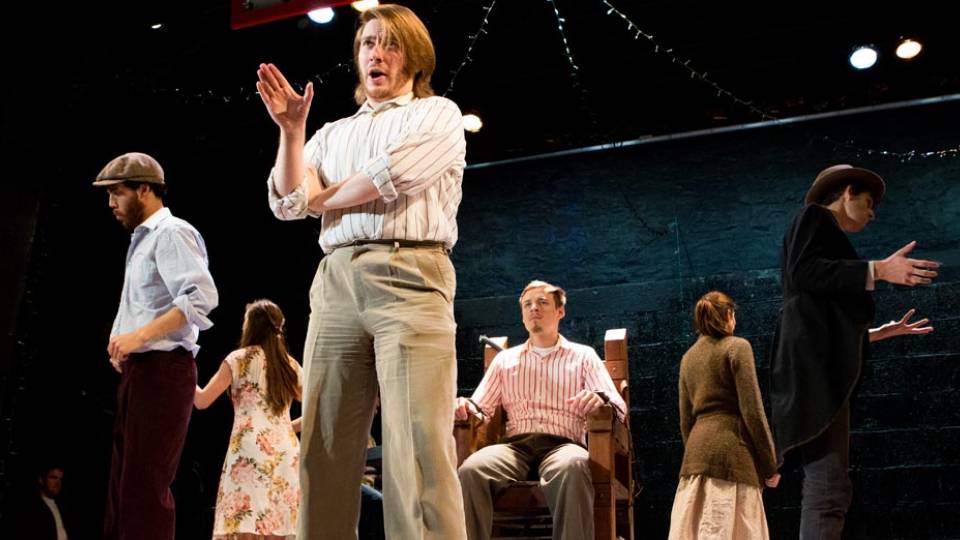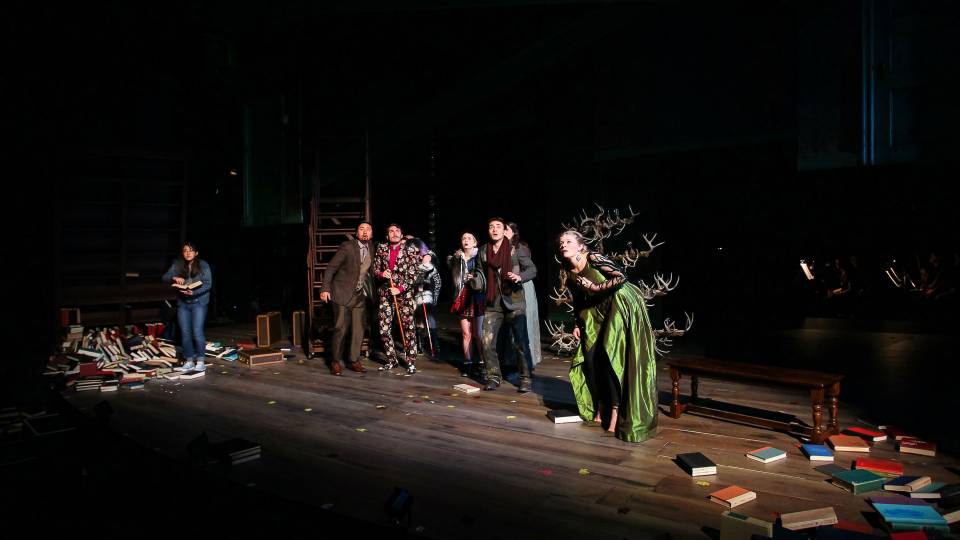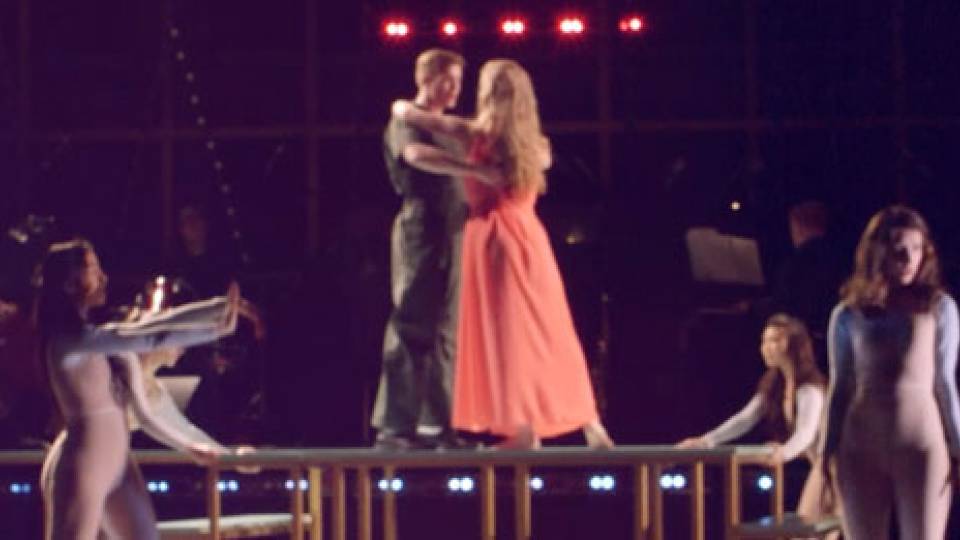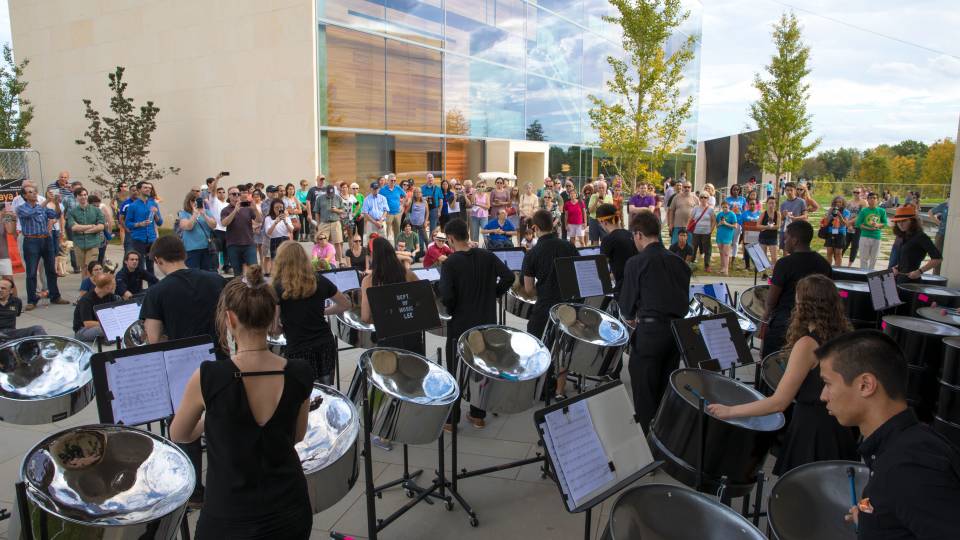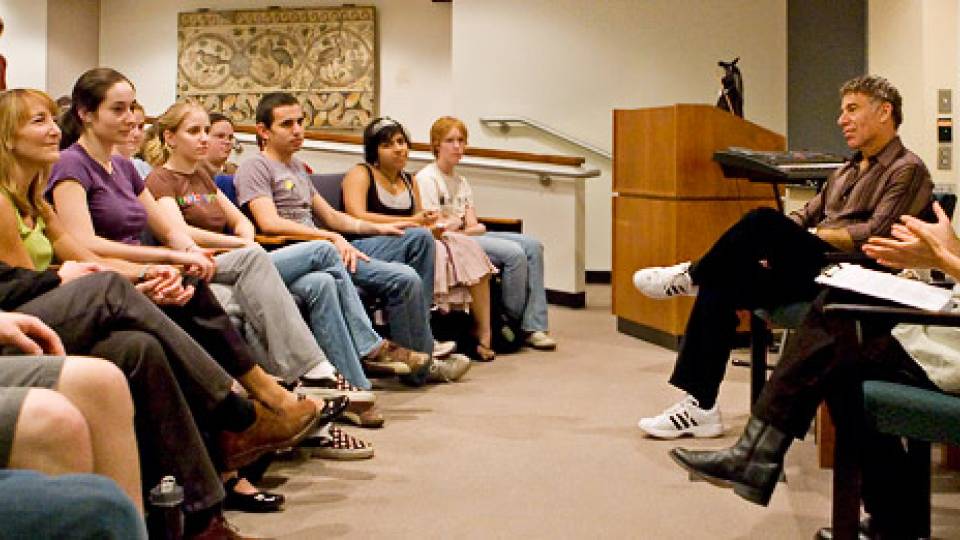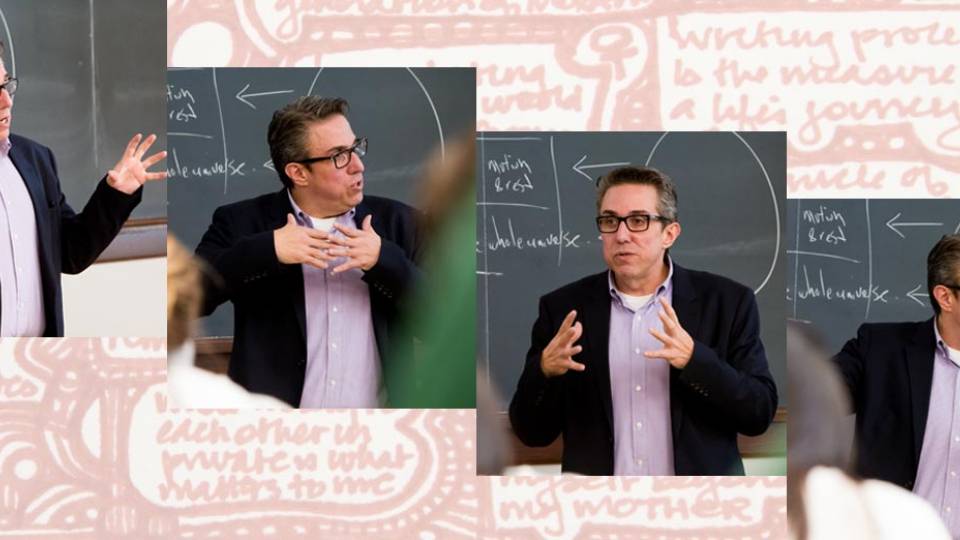A needle peeks through the thick fabric as trim is sewn onto a costume. A tap shoe clicks its energetic, syncopated rhythm on the stage floor. A soprano's voice wends its way through the air with heartbreaking melody. Bodies leap and bound, then gently connect and dissipate. And anyone in the rehearsal room can ask, "What if? …"
This is music theater in the making.
"'Why music theater?' is the question we asked ourselves as soon as we wanted to start this program at Princeton," said Stacy Wolf, director of Princeton's new Program in Music Theater and a professor of theater in the Lewis Center for the Arts. "We are excited that we can have this kind of expansive vision in a place [that is] small [and] very undergraduate-focused. We're completely collaborative in everything we do."
Starting this fall, the program, established in collaboration with the Program in Theater, the Program in Dance and the Department of Music, will support and develop students' engagement with music theater as both an artistic practice and a field of scholarly study. In addition to their major, students can earn a certificate in music theater, culminating in a senior thesis project, or they can just take one class or more. In this video, Wolf and students reveal the many facets of the new program, including close access to faculty and the process of creating new work.
"We very much pride ourselves on balancing scholarly pursuits and artistic pursuits, performance and creation," said Wolf. "All of our students are scholar-artists and artist-scholars. We do not see the difference between making scholarship and making art."
With courses that cover a broad range of topics taught by Princeton faculty and lecturers who are working professionals in the field, the program sets no limits on what music theater can look like. "We don't have an agenda in terms of what music theater creation can mean at Princeton," Wolf said. "We are excited to see where students are coming from and how we can help them as artists and as scholars to make new stuff."
Princeton's proximity to New York opens up a host of possibilities for guest visitors — including theater directors, musical directors, designers, critics and others — who can hop on a train, said Wolf. They can come to campus for an afternoon to talk about their artistic process and works in progress and engage students in conversation and exploration through master classes and workshops. "To have access to artists in that way is unique and absolutely amazing," she said.
Collaboration is a critical component of the music theater program. Wesley Cornwell, a member of the Class of 2016, said his development as a theater artist benefited from working with other students who are pursuing different majors. "You have an incredible diversity of academic backgrounds all being brought into the same classroom for the same project, asking the same questions — and that diversity of academic thoughts … yields so many more interesting results," he said. "This combination of intellectual rigor and creativity is really astonishing."
Cornwell, who worked on a number of productions during his time at Princeton in various capacities from costume design to set design, said, "Princeton is this great combination of the academic side and the creative side, with faculty who are there to support you every step of the way — from visual research to scene breakdowns to technical drawings or costume sketches through tech, all the way to the performance."
Julia Peiperl, a member of the Class of 2017, also noted the open access to faculty Princeton offers its students. "I have had this guidance that has helped me to radically increase the quality of my work," she said.
Billy Cohen, a member of the Class of 2016, said: "The professors take a genuine interest in each and every student, no matter what their background is or what they plan on doing with theater or musical theater in the future. They really focus on bringing to life what each student is capable of doing every day."
The faculty includes scholars and professionals at the top of their field — including Jane Cox, recently named director of the Program in Theater and a renowned lighting designer whose recent credits include London's National Theatre's blockbuster production of "Hamlet" starring Benedict Cumberbatch and "The Color Purple" on Broadway, directed by fellow faculty member, John Doyle. Doyle, who has numerous credits in London's West End, won a Tony Award for his direction of "Sweeney Todd" on Broadway, and his Broadway production of "Company" garnered a Tony for Best Revival of a Musical.
Recent guest lecturers and visitors include lyricist and librettist Robert Lee, a 1992 alumnus and faculty member in the Graduate Musical Theatre Writing program at New York University's Tisch School of the Arts, and choreographer and multidisciplinary theater and video artist Dean Moss.
Music theater, said Wolf, encompasses a range of art-making. "It does include the Broadway musical. It also includes opera — we have a very strong opera program here — as well as what we think of as more avant-garde music theater, different ways that music, theater, dance, text and performance all come together to make an entirely new hybrid form."
To celebrate the launch of the Program in Music Theater, Princeton is hosting a daylong symposium "Curtain Up" 10 a.m. to 5 p.m. Saturday, Oct. 8, at 185 Nassau St., Stewart Theater.
To hear more students discussing and showing their experiences with music theater at Princeton, watch our Music Theater at Princeton playlist on YouTube.
